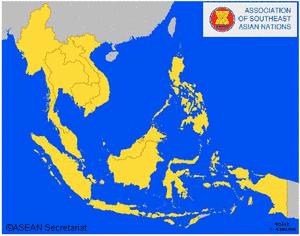The Asia-Pacific region is well known for its diversity in cultures, languages, historical backgrounds, political systems, and development stages. Despite this great diversity, the Association of Southeast Asian Nations plus its 6 major country partners -- Australia, China, India, Japan, New Zealand and the Republic of Korea -- (ASEAN+6) share similar visions of educational development.
In the ASEAN+6 countries, education and human resource development are regarded as key elements in the enhancement of their competitiveness. In order to develop effective and efficient education systems in the Asia-Pacific region, it is important to understand a range of interconnected education issues in ASEAN+6 countries to learn from their respective experiences and enable strengthening education policies. However, such information has not been readily available.
In this context, UNESCO Bangkok recently launched a comparative report, Education Systems in ASEAN+6 Countries: A Comparative Analysis of Selected Educational Issues, which highlights key issues, challenges, and opportunities for improving education systems in ASEAN+6 countries. The report explores education systems of these ASEAN+6 countries, focusing on education policy and management, secondary education and Technical Vocational Education and Training (TVET) which are regarded as important policy areas in these education systems.
The report shows that high performing education systems have been consistent in their commitment to clear political visions and their implementation through facilitating coordination across the sub-sectors and initiating specific measures to achieve a holistic education development. They paid special attention to aligning different education policies around an overarching framework for national development.
The findings of the report also emphasize importance of focusing on equity in and relevance of learning at all levels in line with national and international standards. Ensuring access to education for the most vulnerable and disadvantaged groups is becoming critical for the education systems in the region. With expanding the access to education, policies should respond to the diverse learning needs of students as well. Education systems need, for instance, to address the emerging requirements for young people to adapt to rapid changes and to embrace respect for diversity.
The report also points out that successful implementation of education policies and reforms rely greatly on partnerships between stakeholders: governments, the private sector, civil society organizations as well as bilateral and multilateral organizations. Moreover, cooperation in a collaborative, constructive and mutually supportive manner at national and regional levels leads to more responsive, enabling and accountable planning, implementation and execution of policies.
An establishment of benchmarks against which a progress of a programme and performance of an education system could be monitored and compared, is an important step to improve education policy and practice in different areas. To this end, national education data systems need to be strengthened to inform evidence-based policy making and successful monitoring, and evaluation of education system performance.
It is clear that a one-size-fits-all model for improving education systems is not feasible, given diverse country contexts in the Asia-Pacific region. The recommendations from this report leave space for policy makers and education ministry staff to draw lessons based on their own national development needs, and further in-depth analysis which may be required to support in this process.
Ten ASEAN members are Brunei, Cambodia, Indonesia, Lao PDR, Malaysia, Myanmar, the Philippines, Singapore, Thailand and Viet Nam.

29.04.2014
Discussion topics:
- Log in to post comments













Latest Comments